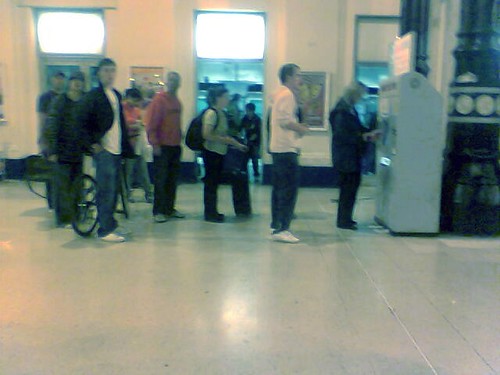
Buying a train ticket can be a trouble. You can get them on the internet, and some train operators have excellent web sites. An example is sj.se, which lets you print out your ticket and reserve a seat, showing a plan of the train so that you can pick a genuine window seat if you want.

In some places, including parts of Denmark, the ticket machines are on the trains, which is the best place of all.
In the 1980s British Rail introduced a simple ticket machine called the Quickfare. These sold, for cash, a limited range of tickets with a couple of button presses, the whole operation taking about 15 seconds. But they were replace about five years ago by the machines in the top picture, which To buy a ticket with the new machines takes a dozen or more button presses and about two minutes for the transaction.
It is obvious that people have trouble with them. You can see them with puzzled looks on their faces, with their fingers hovering over the screen wondering which button to press. Many people are scared to use the machines and go to the ticket office instead, which they would not have done with the old machines. The result is long queues both at the ticket machines and in the ticket office. I have often missed trains even though I allowed 20 minutes to buy a ticket.
I have complained endlessly about the machines but this being Britain, complaining is useless. But it shows that there are easier ways to cut journey times than by spending billions on new railways.

Kommentarer